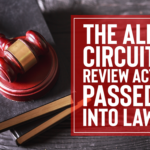For over 150 years, the False Claims Act (FCA) in its various iterations has empowered ordinary citizens to bring allegations of taxpayer-related fraud to the government’s attention by offering large financial rewards to those who do. By bringing a qui tam lawsuit pursuant to the FCA, a whistleblower stands to earn a substantial reward for their efforts based on several factors, most importantly the amount of money that the federal government is able to recover.
Whistleblowers Can Be Rewarded 25% or More of the Government’s Recovery
Currently, the federal government can assess a civil penalty of between $10,957 and $21,916 for every violation of the FCA (and there can be quite a few violations in large-scale fraud). In addition, the government can recover three times the entire amount of the damages that were inflicted on the government due to the fraud. For fraud that enters into the millions of dollars (which is often the case with Medicare/Medicaid and procurement fraud), this means that the government can recover many millions of dollars.
A whistleblower who brings original information relating to government fraud via a successful qui tam lawsuit stands to recover between 15% and 25% of the entire amount recovered by the government, when the Department of Justice joins in the lawsuit. If the Department of Justice declines to join the lawsuit, but the lawsuit is nonetheless successful, the original “relator” of the information (the person who files the lawsuit) can recover even more: between 25% and 30% of the entire funds recovered.
In addition, a whistleblower can also recover incidental costs related to bringing the lawsuit as well as the cost of reasonable attorney fees.
Factors That Could Affect Your Qui Tam FCA Reward
There are two primary situations in which a successful qui tam lawsuit could result in a somewhat smaller payout to the whistleblower.
First off, the federal government is ideally looking for new information about fraud that it did not have access prior to the whistleblower relating that information. If a successful qui tam lawsuit is partially based on information that was already known – such as through a preexisting government investigation, civil lawsuit, criminal proceeding, congressional hearing, or media report – then the payout might be reduced to 10% or less of the total recovery. This number will be set based upon the quantity and value of the information provided by the relator in winning recovery. Your attorney will lobby for the maximum recovery on your behalf.
Second, where the whistleblower himself took part in the illegal actions forming the basis of the lawsuit and subsequent recovery, the federal government may also limit the recovery provided to that relator. In doing so, they will take into account the egregiousness of the activity as well as the whistleblower’s remedial efforts in bringing important information to the government’s attention.
Matters can get especially delicate when the whistleblower himself may be implicated in the illegal behavior, and, as with any FCA lawsuit, potential whistleblowers are strongly encouraged to work with experienced counsel in preparing for and pursuing a qui tam lawsuit.
Reach Out to an Experienced Whistleblower Attorney Today
At Kreindler & Associates, our experienced whistleblower attorneys will work with you every step of the way to determine your appropriate course of action, protect you from retaliation, and collect your much-deserved reward. All of our consultations are 100% confidential. Contact us today for an evaluation of your allegations and potential outcomes.



